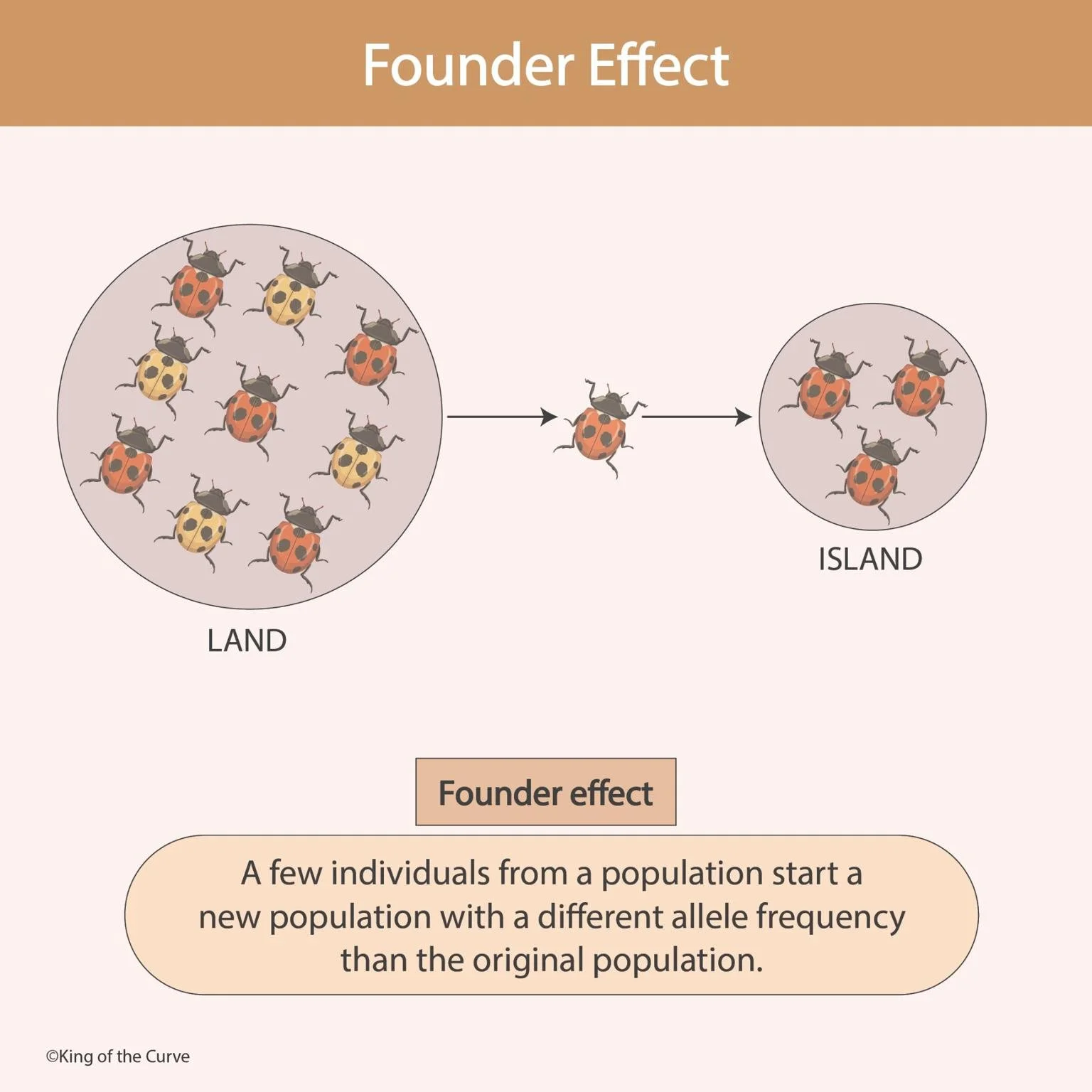🐞 Founder Effect: Small Beginnings, Big Genetic Changes
The Founder Effect is a powerful concept in genetics that explains how new populations can arise with different genetic traits simply because they were founded by only a few individuals.
When a small group separates from a large population and starts a new colony, the genetic diversity of that colony reflects only the genes carried by the founders. This can drastically change allele frequencies and sometimes lead to traits becoming more common — not because they are advantageous, but simply due to chance.
🔬 Key Features of the Founder Effect
Limited Gene Pool: The new population has fewer variations than the original group.
Genetic Drift: Random changes in allele frequency have a bigger impact.
Unique Traits: Certain traits can become more or less common in the new population.
Real-World Impact: Observed in human groups (e.g., Amish, Ashkenazi Jews) and animal populations on islands.
🌍 Why It Matters
Evolutionary Change: Small groups can evolve differently, leading to new species over time.
Medical Relevance: Higher prevalence of genetic disorders in isolated groups.
Conservation Biology: Understanding founder effects helps in managing endangered species populations.
📌 Example
On the mainland, a population of beetles may have a mix of red, yellow, and orange.
A few beetles travel to an island. If only red beetles make the journey, the new colony will mostly be red, regardless of the variety in the original group.
🧬 Founder Effect and Human Populations
One of the most striking examples comes from isolated human communities. Certain genetic diseases, such as Ellis-van Creveld syndrome among the Amish, are more common because their ancestors carried specific alleles that became widespread through the founder effect. This highlights how the history of migration and settlement can shape genetic health risks today.
🌱 Role in Evolution and Biodiversity
The founder effect also plays a crucial role in the emergence of new species. When populations split and become genetically distinct, they may no longer interbreed with the original group. Over generations, this can lead to speciation, fueling the diversity of life we see on Earth.
🛡️ Lessons for Conservation
Conservation biologists pay close attention to founder effects when trying to save endangered species. Introducing a population with very few individuals can lead to inbreeding and limited genetic diversity, which threatens survival. That’s why efforts often focus on maintaining a broad gene pool to preserve adaptability and resilience.
Frequently Asked Questions (FAQs)
-
Aim for 4-6 focused hours, ensuring you incorporate breaks to avoid burnout.
-
Practice mindfulness techniques, take practice exams under realistic conditions, and maintain a balanced lifestyle.
-
Set short-term goals, seek support from mentors, and reward yourself for small achievements.
-
Regular exercise improves focus, reduces stress, and enhances overall mental clarity.
-
KOTC offers personalized learning tools, gamification features, and adaptive question banks to help students stay on track without burnout.


